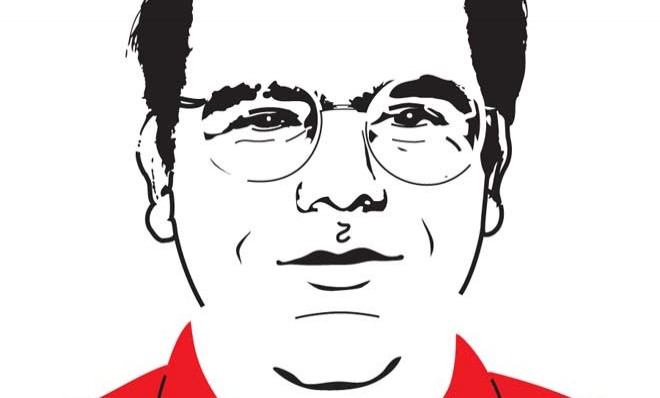Marco Rubio's foreign policy: Blind, irrational, and dangerous
And somehow, this worldview still prevails among GOP leaders

A free daily email with the biggest news stories of the day – and the best features from TheWeek.com
You are now subscribed
Your newsletter sign-up was successful
In a speech at the University of Louisville this week, Sen. Marco Rubio (R-Fla.) warned against U.S. "retreat" from the world, which he claimed would result in a vacuum filled by "chaos" and "tyranny."
These remarks have been interpreted as a rebuke to the foreign policy views of Rubio's colleague and possible 2016 rival, Sen. Rand Paul (R-Ky.). But they are more important than an example of intra-party feuding. These statements reflect the seriously flawed assumptions of Rubio and other hawkish interventionists about what American engagement in the world requires, and they reveal just how alarmist and outdated Rubio's worldview is. And it is because Rubio's worldview continues to be the one that prevails among Republican leaders that it merits closer inspection.
"This is what will replace us on the global stage: chaos and tyranny," Rubio warned. On one level, this is rather crude fear-mongering, but there is more to Rubio's argument than that. When he warned that "chaos" and "tyrannical governments" will fill a void left by U.S. "retreat," Rubio was showing his continued reliance on the arguments of Robert Kagan, whose book, The World America Made, Rubio referred to frequently in his foreign policy address at the Brookings Institution last year.
The Week
Escape your echo chamber. Get the facts behind the news, plus analysis from multiple perspectives.

Sign up for The Week's Free Newsletters
From our morning news briefing to a weekly Good News Newsletter, get the best of The Week delivered directly to your inbox.
From our morning news briefing to a weekly Good News Newsletter, get the best of The Week delivered directly to your inbox.
It has become a common hawkish refrain that the U.S. cannot withdraw from any conflict or reduce its commitments anywhere in the world without inviting either chaos or risking the increased influence of authoritarian major powers or both. Kagan has been one of the strongest proponents of this view, and Rubio appears to have adopted most of Kagan's arguments. This view both overstates the importance of an extremely activist U.S. foreign policy for international stability and underestimates the ability of rising democratic powers to assume regional responsibilities.
The idea that U.S. preeminence in the world must necessarily be "replaced" by the global dominance of authoritarian governments hasn't made any sense in over 20 years. Today, major authoritarian powers are significantly less powerful and less ambitious in their foreign policy goals than America's 20th century rivals. Today, many of the world's rising powers are democratic and have no interest in falling in line behind Chinese or Russian "leadership." So the implication in Rubio's speech that there is a danger of another state becoming the world's predominant military power is sheer alarmism designed to justify an exorbitant military budget that is larger in real terms than it was at the height of the Reagan-era build-up. The fear of being surpassed militarily by another major power has rarely been more unfounded, and the danger to the U.S. from pursuing a less activist role abroad has rarely been smaller. Rubio's vision of America's role takes none of this into account.
Another flaw in Rubio's thinking: His definition of what constitutes engagement with and "retreat" from the world is heavily skewed by his apparent conviction that the U.S. should regularly entangle itself in the internal conflicts of other countries. According to that definition, failing to intervene or to become more involved in the conflict in Syria, for example, is viewed as equivalent to "disengagement." Rubio wanted a larger, faster intervention in Libya, and he wants greater U.S. involvement in Syria as well. While he said that that the U.S. shouldn't be involved in "every civil war and every conflict," Rubio's record to date shows that he has yet to see a high-profile foreign conflict in which he didn't want the U.S. heavily involved.
There is no danger that the U.S. will cease to engage with the rest of the world. But there are very real dangers that U.S. foreign policy will remain overly militarized and excessively confrontational toward other states. Rubio's foreign policy would require more of both. The greatest damage to international peace and stability that the U.S. can do is if it keeps resorting to force to handle crises and disputes as often in this decade as it did in the last. Support for "retreat" is the last thing that Americans need to worry about from their policymakers and political leaders, many of whom remain only too eager to find reasons to sound the attack.
A free daily email with the biggest news stories of the day – and the best features from TheWeek.com
Daniel Larison has a Ph.D. in history and is a contributing editor at The American Conservative. He also writes on the blog Eunomia.